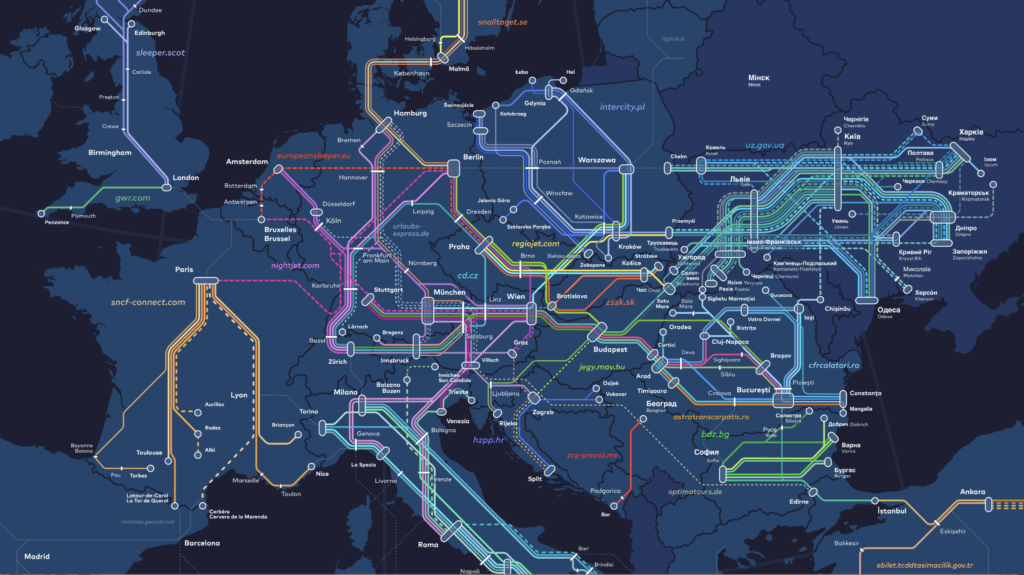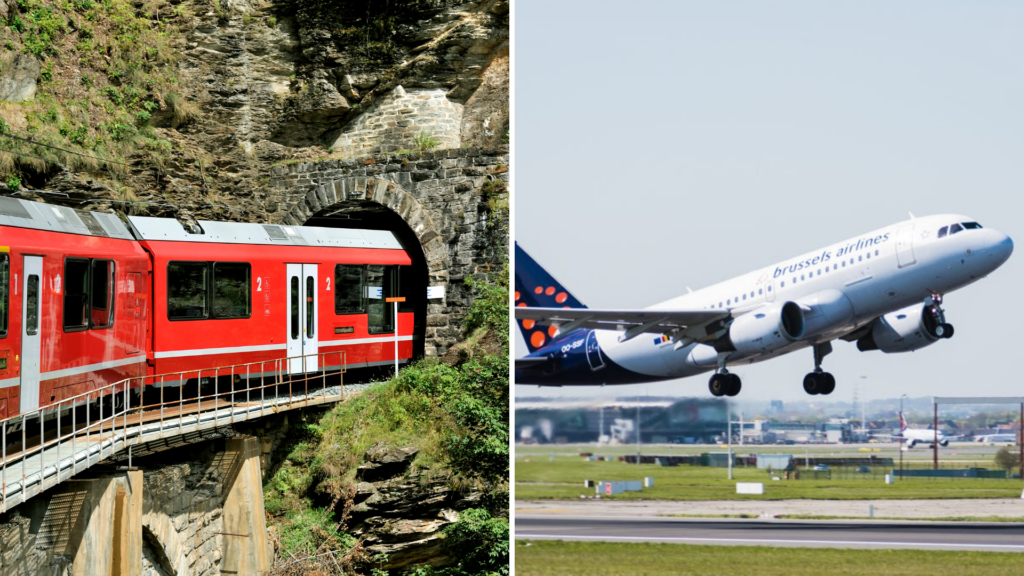European cities, including in Belgium, are still much better connected by aeroplanes than by train, Greenpeace research showed. From Brussels, train connections are possible to 28 cities, but not even half of these connections are being serviced.
Brussels may be the capital of the EU and benefitting from a geographically central position, but the Belgian capital is not well connected by direct trains. Of the 44 major European cities analysed (45 including Brussels), only 11 can be reached by direct train from Brussels. This equates to a direct train connectivity of just 39%.
"There is no direct train connection to 61% of the cities that could be reached by a direct train within 18 hours," Greenpeace Belgium noted in its report.
"Meanwhile, all other 44 cities analysed can be reached by a direct flight, excluding Cologne and Luxembourg – both of which are too close to fly – and Kyiv."
From Brussels, there are 136% more direct flights than direct trains to destinations that can be reached by train within 18 hours, while there are 26 direct flight connections on routes to which people could, or already can, travel by train under 18 hours.
The environmental organisation stressed that only four of the major cities in the study can be reached by a direct night train: Berlin, Munich, Prague and Vienna. "None of these night trains operate daily." There are currently no destinations with existing direct day and night train connections.
17 additional connections
Greenpeace identified 17 cities that could be reached from Brussels by direct train within 18 hours using the existing rail infrastructure.
These are: Barcelona, Budapest, Birmingham, Bratislava, Edinburgh, Hamburg, Copenhagen, Ljubljana, Madrid, Milan, Naples, Rome, Stockholm, Valencia, Warsaw, Zagreb and Zurich. In some cases, direct trains could bring down the current travel time using the best possible connections by more than one hour.
"The most important missing train connections from Brussels under 12 hours are Madrid and Barcelona, which are by far the most used short-haul flight routes from Brussels without a direct train alternative, followed by Milan and Geneva," Greenpeace wrote.
"The most important missing night train destination is Rome, which is in the top five short-haul flights from Brussels without a direct train alternative."

The 2024 night train map of Europe. Credit: Back-on-Track.eu
'Correct historical imbalance'
Overall, Greenpeace analysed 990 routes between 45 major European cities. Only 12% of those routes are served by direct trains, whereas for direct flights this rises to 69%. Meanwhile, the organisation identified another 305 train routes that could easily be served by a direct train.
Greenpeace calls on the next Federal Government to increase direct train connections and remove subsidies for aviation. It also urged other European governments and the EU to "correct this historical imbalance by improving train connectivity and comfort and ending the unfair advantages of the airline industry".
"For years, Europe has rolled out the red carpet for climate-damaging air travel and showered it with tax breaks, while trains and rail infrastructure continue to rot," said Joeri Thijs, spokesperson for Greenpeace Belgium.

